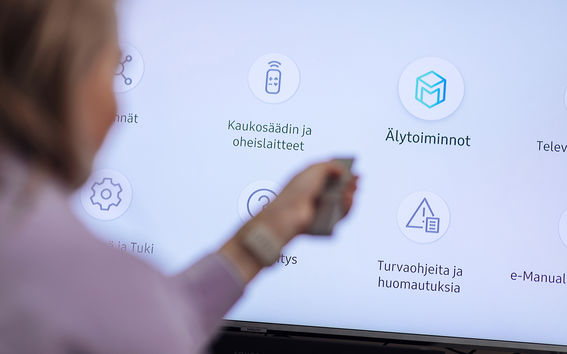Finland creates an educational package to make cybersecurity a civic skill across the European Union

Cybersecurity awareness and the related civic skills play an increasingly important role as our societies become more digitalised. With that in mind, Aalto University and the Ministry of Transport and Communications are carrying out an extensive project to create an educational package to promote cybersecurity skills in the EU Member States. An agreement for a three-year project has been signed.
“Understanding the basics of information security is increasingly important, and digital literacy in general is a civic skill in today’s digital societies,” says Jarno Limnéll, Professor of Practice in Cyber Security at Aalto University, and leader of the project.
“Aalto University has a great deal of experience in various aspects of cybersecurity, including research, teaching, creating online teaching platforms and producing educational materials. We are in an excellent position to export our expertise across Europe while at the same time further strengthening Finland’s good reputation as a country dedicated to cybersecurity,” Limnéll continues.
“The degree to which citizens are willing and able to use digital services determines the pace of digital transformation. Being able to trust in digital products and services is essential. Having security as a built-in feature and raising awareness among users of its importance creates trust,” says Timo Harakka, Minister of Transport and Communications.
“We are talking about civic skills that are important now and even more so in the future as digitalisation progresses. The fact that this project received funding from the EU recovery instrument reflects its importance. Teaching cybersecurity skills and providing related training and education is a worthwhile investment, and an opportunity to make use of novel learning methods,” says Rauli Paananen, National Cybersecurity Director.
Using games to teach cybersecurity skills increases motivation
A team of researchers at Aalto University, led by Limnéll, will start its work immediately. The first, rather extensive stage of the research process is to research what practices and materials are currently used to teach cybersecurity skills to citizens in the EU Member States. The results will be compiled into a comprehensive report.
Aalto University and its cybersecurity researchers have significant experience in EU projects, and they know what a successful project requires. The team also benefits from strong interdisciplinary collaboration within the university. The project team will tap into Aalto University’s multidisciplinary expertise to develop new methods for teaching cybersecurity skills, such as gamification, with the content and visual elements of the game helping to build motivation.
The project will result in the launch of an open website that teaches cybersecurity skills to citizens. The content of the website will be available in all official languages of the European Union. The educational material will be practical and easy to use, and will take into account the specific requirements of different age groups. Early user experiences will provide valuable information for the practical implementation of both the teaching materials and the game.
More information:
Jarno Limnéll
Professor of Practice, project leader, Aalto University
jarno.limnell@aalto.fi
+358 40 5276173
Rauli Paananen
National Cybersecurity Director
rauli.paananen@gov.fi
+358 295 342 212
Read more news

Learning to slow down: cold-water swimming benefits explored in new study
Swimming in cold water offers a temporal slowdown, promoting stress management and mental clarity that lingers long after the experience, says research from Finland.
Alum Ding Ma: 'I want to represent a new-era Mayor'
Ding Ma, who will start as the Mayor of Savonlinna at the age of 37, studied Information and Service Management at the School of Business.
The proxy server for remote access to e-resources is changing
If you have problems using e-resources, try accessing the e-resource using VPN connection.






